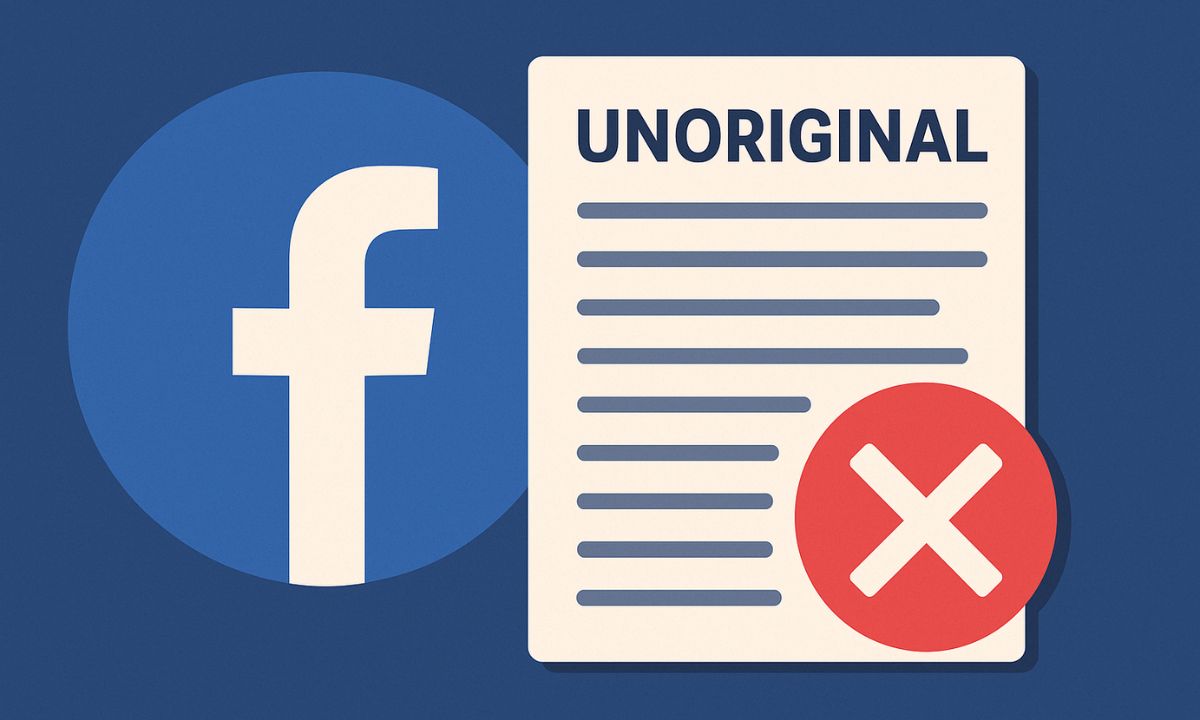
The use of artificial intelligence in the creation of content for social networks this generating a lot spam and companies seek to create mechanisms to limit it. First was YouTube, which today began to implement more restrictive policies in its monetization system. Now is the turn of Goal: The company led by Mark Zuckerberg announced that it will take new measures to combat non -original contentwith the aim of protecting and promoting real creators.
As the same company explains in an official statement, «the non -original content reuse or re -adapt the content of another creator repeatedly without giving credit, taking advantage of its creativity and hard work.
We love that creators share content, comment in a reaction video or join a trend, contributing their unique touch. What we want to fight is the repeated publication of content of other creators without significant permission or improvements ».
Facebook gets serious with duplicate content
From next month, from Meta they will review in more detail the pages and profiles that generate income on the platform to ensure that they are not abusing the content of others. “Accounts that improperly reuse videos, photos or text publications of other users repeatedly will not only lose access to Facebook monetization programs for a while, but will also reduce the distribution of everything they share,” explains the company.
That is, if your page is dedicated to downloading Tiktok videos to upload them as is the social network, or if you fill your reels of foreign memes without contributing anything new, you could find an unpleasant surprise: the partial or total demonetization of your account. It is not enough to add an emoji or a quick intro; The company clarifies that they seek “significant improvements and unique contributions” to consider that this content is its own.
In addition, they clarify that if the systems detect duplicate videos, they will reduce the distribution of copies so that the original creators have the visibility they deserve. They are also exploring new forms of content attribution for creators, such as the inclusion of links to duplicate videos that direct viewers to the original content, as can be seen in the following image:
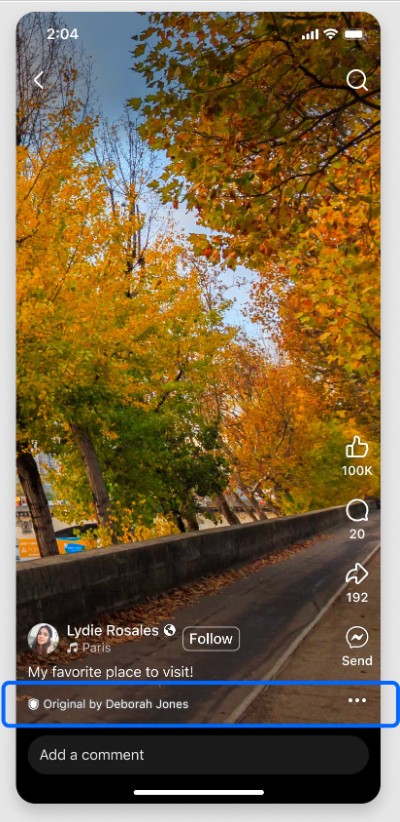
What is considered non -original content
Goal defines the non -original content Like the one “Reuse or re -adapt the content of another creator repeatedly without giving credit,” and puts as an example the accounts that are limited to reproduce virals without authorization or relevant modifications. It also points out that they do allow themselves to be inspired by trends, react or comment on publications of others, provided that it is done from a personal approach and added value.
“Our intention is not to discourage creators who participate in trends or react to other videos, but discourage those who build their business on others without contributing anything of their own,” they clarify. A direct ears to those who abuse the creativity of others to generate easy income.
How to avoid penalties
In its statement, goal also offers some recommendations or “good practices” to guide content creators. These are the most prominent:
Create original content: Record your own videos, write your own texts, and share your own ideas.
Give credit to others: If you are going to use foreign content, be sure to label or mention the original creator.
Provides value: If you reuse material from another, add your analysis, reaction, context or a creative return.
Check the policies: Stay up to date with finishing updates to avoid unpleasant surprises.
You can check if you run the risk of receiving penalties on recommendation of content or monetization in the Support Start Screenaccessible from the main menu of your page or professional profile:
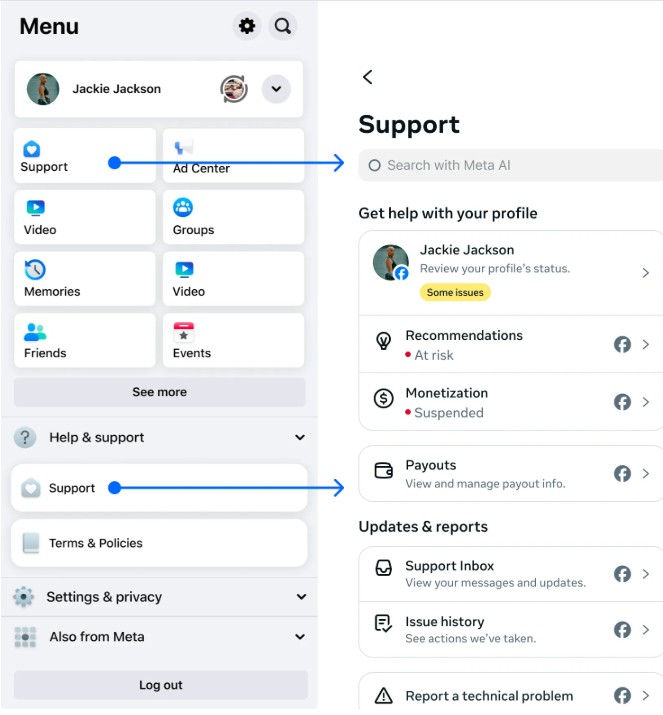

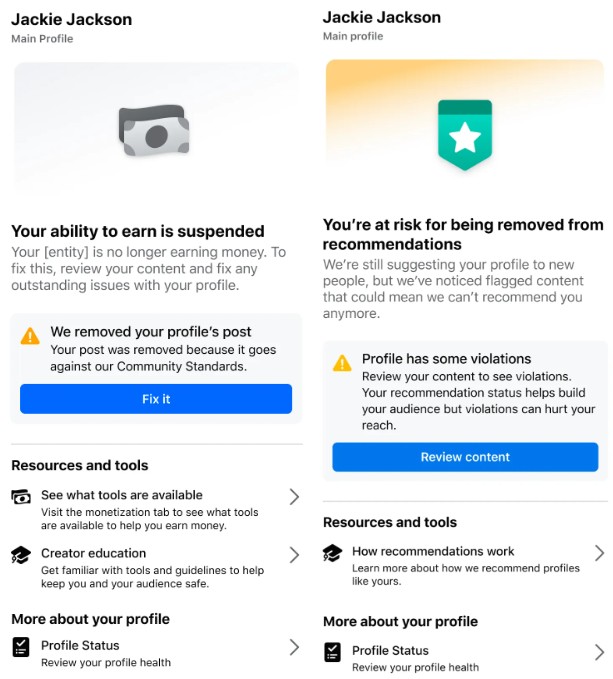

On the other hand, if your content is not working well and you do not understand why, it is probably being penalized in its distribution. To check it, you can go to Professional Panelwhere Goal explains why your content may not be distributed (If this is the case):
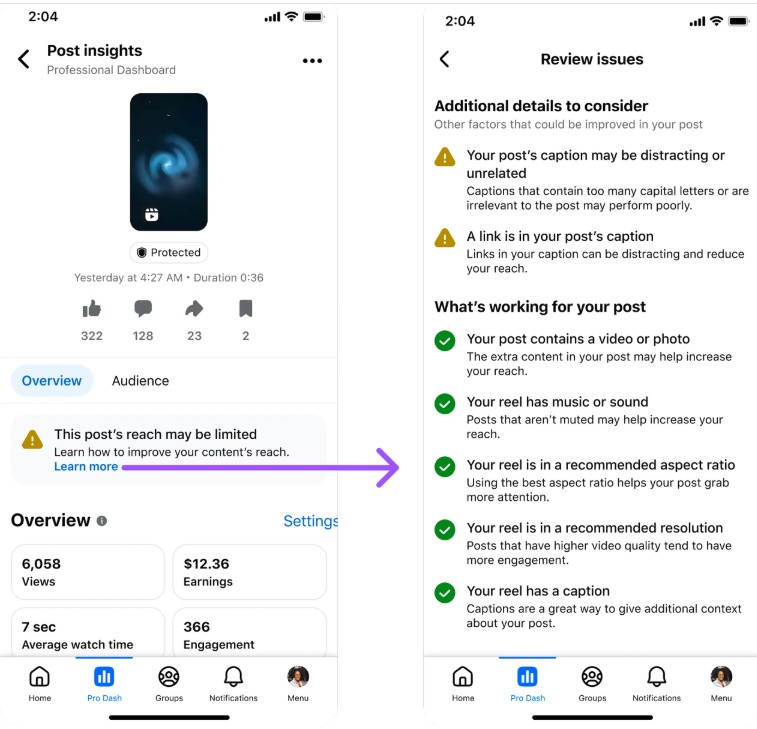

A policy that began at the beginning of 2025
This measure goes hand in hand with several actions that the company has been carrying out since the beginning of the year. During the first semester, Meta sanctioned 500,000 accounts incurred in spam or false interactions, with measures that went from degrading their comments and reducing the distribution of their content until they prevent these accounts from monetizing. It has also eliminated about 10 million profiles that passed through large content producers.
Photo: Chatgpt




